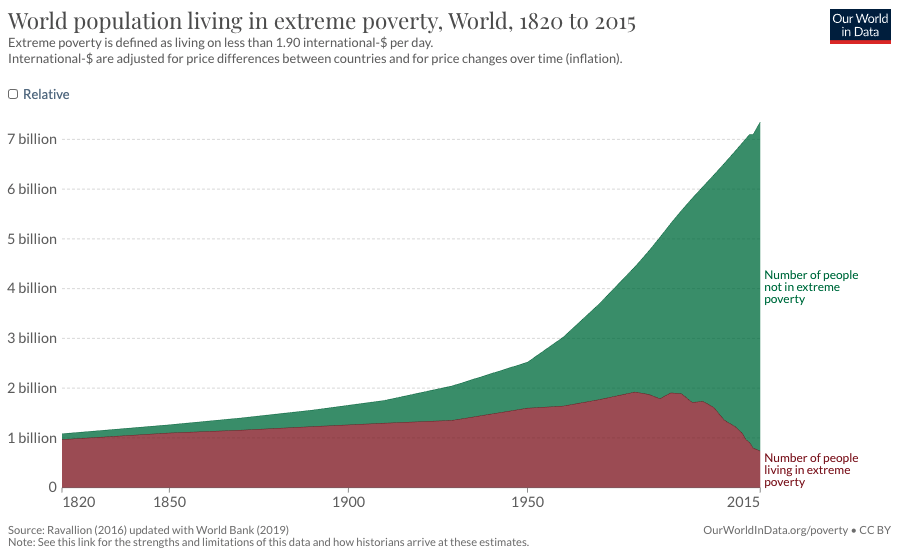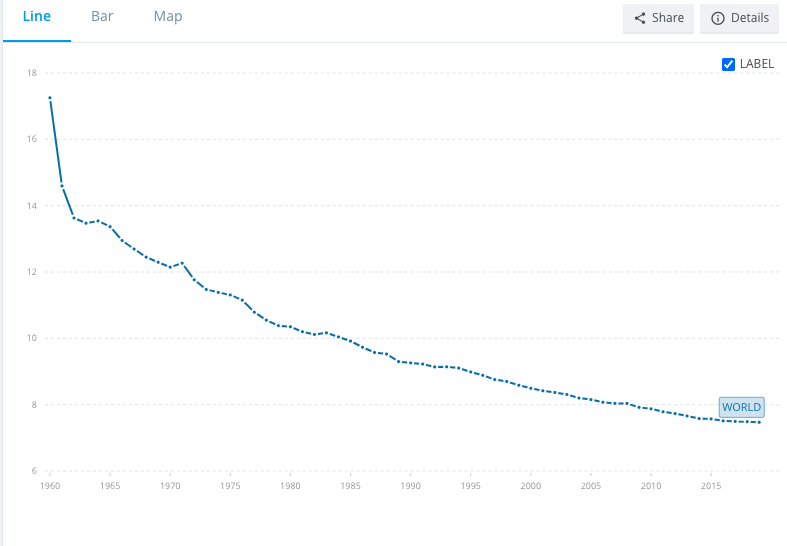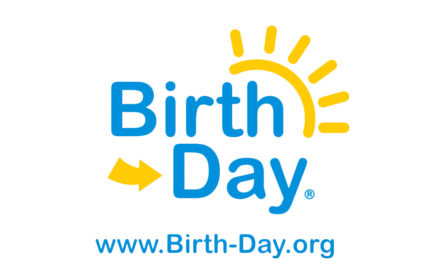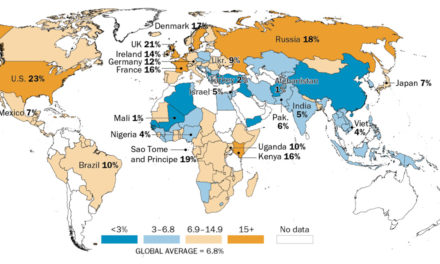More than likely, you have constantly heard it said that the world has too many people.
Consider this headline from March 1, 2023, in the Scientific American: “Eight Billion People in the World Is a Crisis, Not an Achievement.”
The article was authored by Naomi Oreskes, a professor of the history of science at Harvard University, who argues that humankind is a sort of parasitic infection on Mother Earth.
“We ought to have a plan for slowing the destructive surge in human population,” Oreskes writes, “But we don’t.” She goes on to argue that humanity needs a plan to slow our population growth because of humankind’s detrimental impact on the Earth.
Or how about 96-year-old David Attenborough, who in a 2018 address to the World Economic Forum, argued that the Earth cannot cope with our “overpopulation,” since human beings are quickly using up the planet’s finite resources.
Additionally, consider one of the greatest books popularizing the overpopulation myth – the best-selling book Population Bomb, authored by Paul Ehrlich in 1968. The Daily Citizen has previously chronicled how Ehrlich’s predictions have been nearly all incorrect.
This Malthusian, anti-human perspective has been proven wrong. Repeatedly.
Since 1900, humanity’s population has risen from two billion people to over eight billion – a four-fold increase. Based on the “resources are scarce” and “there are too many people” mentality, we would expect to find that living conditions have declined commensurate with the rise in population. But the opposite has occurred.
Here are just two examples.
- In 1900, around 79% of humanity lived in extreme poverty. Today, just 10% do. Humanity has seen the near elimination of extreme poverty in just a few short decades. That’s remarkable.

Photo Credit: Our World in Data
- Additionally, since 1970, the number of annual deaths per 1,000 people has declined and continues to do so. The number has fallen from 12 deaths per 1,000 people in 1968 to just seven as of 2019.

Photo Credit: The World Bank
Clearly, the doom-and-gloom fed to us by so many on the anti-human Left is inaccurate.
But will these trends – rising population and increasing quality of life – continue for the next 100 years?
Very likely, the answer is no, because in a few short decades, the number of innovators, workers, developers, creators, doctors, scientists and researchers (also known as humans) who make the world a better place will start to decline.
A new study, commissioned by the Club of Rome, is projecting that the world will reach its peak population prior to 2050, and then “decline rapidly” after that.
If that seems like good news, it certainly is not.
According to The Guardian, the study’s median “business-as-usual” case, where government’s existing politics and current population trends continue, projects the global population peaking at 8.8 billion in 2044, and then declining to 7.3 billion by 2100.
However, in a second scenario – which The Guardian inanely describes as “more optimistic,” the study finds that Earth’s peak population will only rise to 8.5 billion by 2040. However, what they project after that is remarkable – and not in a good way.
The study finds that between 2040 and 2100, the human population will crater by one third, and fall to just 6 billion by 2100. That’s right. Under this scenario, whole nations will simply cease to exist by the end of this century because they are not creating enough future citizens.
In the book Empty Planet: The Shock of Global Population Decline, researchers Darrell Bricker and John Ibbitson write about what the future holds once the world population starts to decline.
They assert:
The great defining event of the twenty-first century – one of the great defining events in human history – will occur in three decades, give or take, when the global population starts to decline. Once that decline begins, it will never end.
We do not face the challenge of a population bomb but of a population bust – a relentless, generation-after-generation culling of the human herd. Nothing like this has ever happened before.
So, while it is true that humanity will most likely experience a population “crisis” in this century, it’s not because there will be too many humans.
It’s because there will be too few.
The ongoing population crisis demonstrates why the work of Focus on the Family is so important, as we encourage Christians to get married and have children. As goes the family, so goes the nation – and the world.
Would you be willing to partner with us as a Friends of Focus on the Family sustaining member during our first annual sustainer drive? Find out more information here.
Related articles and resources:
Births in Japan Fall to Record Low Amid Catastrophic Population Decline, Foretelling World’s Future
Japanese Prime Minister Warns of Imminent Societal Collapse Due to Low Birth Rate
‘60 Minutes’ Platforms New Environmental Alarmism from Man Who’s Been Famously Wrong for 50+ Years
Photo from Shutterstock.






